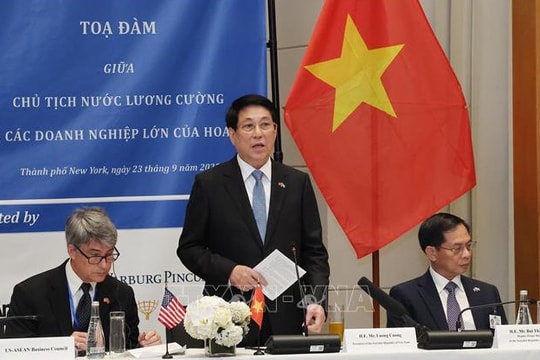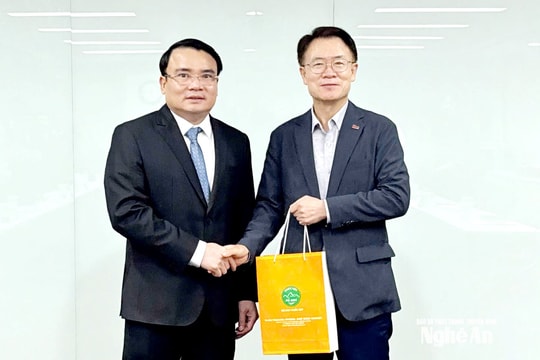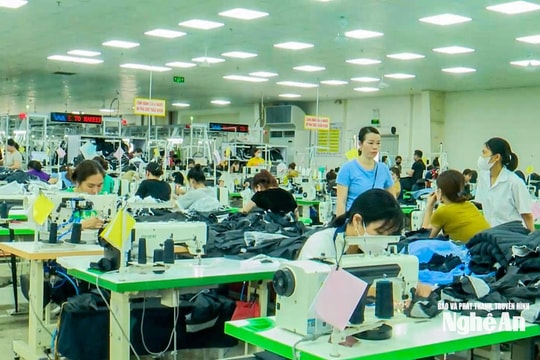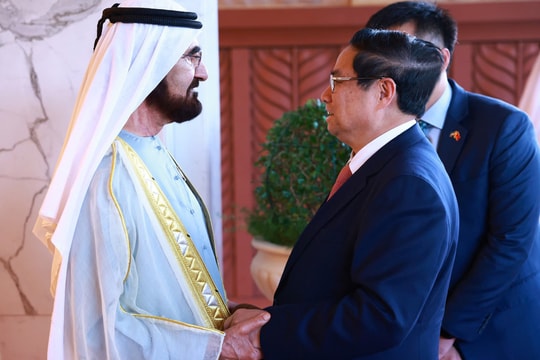'Boost' for Germany-India free trade?
(Baonghean) - During his two-day visit to Germany, Indian Prime Minister Narendra Modi was warmly welcomed at the German Government's Meseberg Castle and attended important talks with his counterpart Angela Merkel. For Mr. Modi, this visit will "open a new chapter" in the strategic partnership between the two countries.
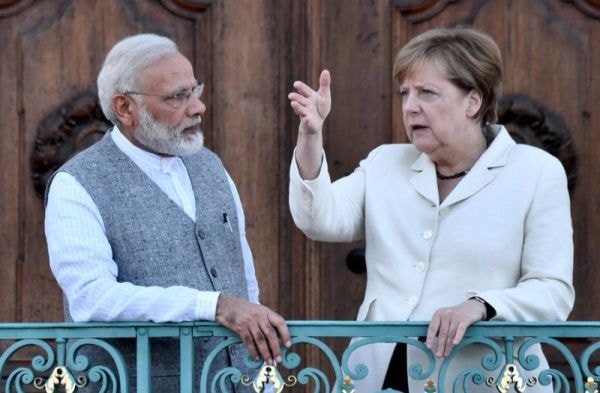 |
| German Chancellor Angela Merkel and Indian Prime Minister Narendra Modi. Photo: AFP |
Key partners
During his visit to Germany, Mr. Modi was accompanied by cabinet ministers and representatives of Indian businesses. This is not surprising, because Germany is India's largest trading partner in the European Union (EU), with bilateral trade turnover reaching nearly 20 billion USD.
While on the first day of his stay in the European economic “locomotive”, the Indian leader had informal meetings with the “iron lady” of Berlin, visited and strolled around the grounds of Meseberg Castle, on May 30, the two leaders attended dialogues with the main focus on trade and investment.
“The Indian government has been completely focused on development. Now, when Prime Minister Modi comes to Germany, we will see the fruits of the meetings and discussions between the two countries. There is a real close cooperation between the two countries,” said India’s Human Resource Development Minister Prakash Javadekar.
In addition, the two leaders also mentioned topics of common concern including cooperation in defense, counter-terrorism and promotion of each country's language.
Sharing this content, Mr. Javadekar said: “We have teacher exchange programs under which German teachers come to India and train Indian teachers in teaching German. Now, we will also send Indian teachers to Germany to teach Germans how to teach Hindi. We have decided to promote the development of one language in the other and vice versa, and there are many other initiatives.”
After the high-level discussions, Mr. Modi and Ms. Merkel joined together to address a gathering of key business leaders from both Germany and India. As many expected, the Indian Prime Minister used the occasion to promote his credentials as an economic reformer and to lay out for business executives the tangible benefits of investing in a fast-growing economy like India.
Indeed, Germany is New Delhi’s most important trading partner in Europe, with bilateral trade in goods and services totaling $19.4 billion in 2016. In addition, some 1,800 German companies are currently operating in the Indian market.
The South Asian nation’s economic potential is a key factor attracting the interest of more and more German companies and prompting them to invest here. India’s annual economic output grows at around 6-7%, much faster than more developed economies in Europe and North America.
In addition, the Modi government has pushed through several long-awaited reforms, such as overhauling the country’s complex tax code to introduce a national sales tax, replacing more than a dozen other state and federal taxes. This is expected to improve the business investment environment in the Indian market and boost growth.
Attracting investment and promoting FTA?
Before German business giants, Mr. Modi skillfully maneuvered to honor the achievements of the Indian government on the economic front, while inviting them to join in making the populous South Asian nation one of the top investment destinations.
Objectively, foreign investment is essential for Modi’s “Make in India” campaign, which aims to turn the country into a manufacturing hub. The project is a key pillar in the government’s efforts to create jobs for the millions of young Indians who compete in the labor market each year, and is especially important for Modi to fulfill his election promises of developing the economy and meeting the needs of Indian society.
For their part, German companies are optimistic about the overall business environment in India. But they also point to issues that dampen their enthusiasm and discourage them from investing more in the market. These include excessive bureaucracy, corruption and a lack of quality infrastructure and skilled labor. Furthermore, German companies stress that they need a more reliable legal and administrative framework to operate in India.
Another issue that came up during the Merkel-Modi discussions was the India-EU free trade agreement. Negotiations on the agreement – officially called the Bilateral Trade Investment Agreement (BTIA) – began in 2007, but 10 years later, it has yet to be signed.
The gap between the two sides on many of the proposed pact’s provisions is so wide that making progress is almost a herculean task. Negotiations stalled in 2013, but Chancellor Merkel appears to be trying to convince Modi to back the deal and signal to the world that India is a place for free trade.
Not long ago, German Ambassador to India Martin Ney also said at a press conference held in New Delhi that India and the EU should “speak up for free trade and seek a free trade agreement”, emphasizing the special importance of this in the context of increasing calls for protectionist measures and trade barriers around the world.
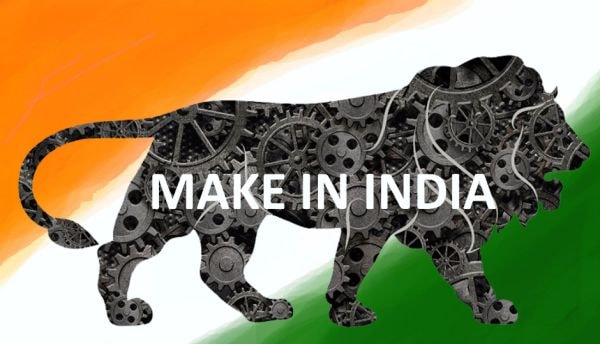 |
| “Make in India” - Mr. Modi's initiative will benefit if the country attracts more foreign investment. Photo: Internet |
Stay engaged
Despite the disagreements, it must be noted that cooperation between the two countries is still very close, as shown by Germany's support for India to carry out some of Modi's "pet" projects such as "Smart City" and "Clean up gangs".
German officials have said Berlin is committed to funding long-term strategic projects in India - such as building new and expanding roads, railways, ports and power stations across the country to serve the development process.
Anandi Iyer, head of the Fraunhofer Institute in India, said that besides smart cities, another potential area where the two sides can cooperate extensively is related to smart manufacturing – also known as Industry 4.0 in Germany. “This is an area that will bring mutual benefits to both Germany and India in the coming time,” Iyer said.
At the same time, she also pointed out that India has software capabilities while Germany is very strong in construction engineering, and the combination of the two sides can create many interesting opportunities. However, this expert also added: "It is necessary to remember that both of the above are strategic initiatives and require very focused and long-term interaction to produce the most positive results." That is the theory, but whether New Delhi and Berlin in the coming time will be able to make good use of their capabilities to bring about achievements commensurate with the mutually beneficial relationship or not still needs to be answered.
Thu Giang
(According to DW)
| RELATED NEWS |
|---|

